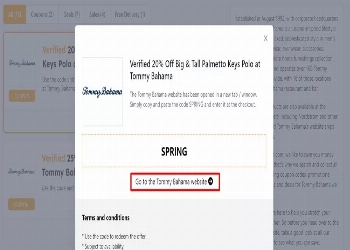
What You Need to Know Before Filing Your Business in Texas
As the second most populous state in the US, Texas is a great place to start a business. The state's diverse economy and thriving businesses make it an attractive option for entrepreneurs.
However, before you can start your business in Texas, there are a few things you need to know. This guide will walk you through the process of filing your business in Texas, from choosing a business structure to obtaining the necessary licenses and permits.
Choose a Business Structure
The first step in starting a business in Texas is to choose a business structure. The most common business structures in the state are sole proprietorships, partnerships, limited liability companies (LLCs), and corporations.
Each business structure has its own advantages and disadvantages. For example, sole proprietorships are the simplest and most common type of business structure, but they offer the least protection for your personal assets. On the other hand, corporations offer the most protection for your personal assets, but they are more complex and expensive to set up.
The Most Commonly Filed Businesses in Texas
There are a number of businesses that are commonly filed in the state of Texas. The most common business entities that are filed in Texas are the following:
Limited Liability Company (LLC)
A limited liability company, or LLC, is a business structure that offers personal liability protection and great tax flexibility. LLCs are easy to form and maintain, and can be a good choice for small businesses and startups.
S Corporation
An S corporation is a special type of corporation that offers its shareholders limited personal liability protection. S corporations are subject to special tax rules, which can save business owners money on their taxes.
C Corporation
A C corporation is the most common type of corporation. C corporations offer their shareholders limited personal liability protection and are subject to corporate income taxes. C corporations can be a good choice for businesses that are looking to go public or raise venture capital.
Partnership
A partnership is a business structure in which two or more people share ownership of a business. Partnerships can be either general partnerships or limited partnerships. Partnerships offer their owners limited personal liability protection and can be a good choice for businesses that are looking for a simple business structure.
Sole Proprietorship
A sole proprietorship is a business structure that offers its owner limited personal liability protection. Sole proprietorships are the simplest and most common type of business structure. They are easy to form and maintain, and can be a good choice for small businesses and startups.
Register Your Business Name
Once you have chosen a business structure, you need to register your business name with the Texas Secretary of State. This is known as filing a "doing business as" (DBA) application.
You can register your business name online, by mail, or in person at the Texas Secretary of State's office. The filing fee for a DBA application is $25.
Get a Tax ID Number
After you have registered your business name, you need to obtain a tax ID number from the IRS. This is known as an Employer Identification Number (EIN). You will need an EIN to open a bank account and file your taxes.
You can apply for an EIN online, by mail, or by fax. The filing fee for an EIN application is $0.
Obtain the Necessary Licenses and Permits
Depending on the type of business you are starting, you may need to obtain certain licenses and permits. For example, businesses that sell food or alcohol need to obtain a license from the Texas Department of State Health Services.
You can find a complete list of licenses and permits on the Texas Comptroller of Public Accounts website.
Register for State and Local Taxes
All businesses in Texas are required to pay state and local taxes. The type of taxes you will need to pay depends on the type of business you are operating.
For example, businesses that sell goods or services are required to pay sales tax. Businesses that employ people are required to pay unemployment tax. You can find a complete list of state and local taxes on the Texas Comptroller of Public Accounts website.
File Your Taxes
All businesses in Texas are required to file state and federal taxes. The type of taxes you will need to file depends on the type of business you are operating.
For example, businesses that sell goods or services are required to file sales tax returns. Businesses that employ people are required to file unemployment tax returns. You can find a complete list of state and federal taxes on the Texas Comptroller of Public Accounts website.
Open a Business Bank Account
Once you have obtained all the necessary licenses and permits, you can open a business bank account. This will help you keep your personal and business finances separate.
When you are ready to open a business bank account, you will need to bring your business registration documents, your tax ID number, and a government-issued ID.
Get Insurance
All businesses in Texas are required to have insurance. The type of insurance you need depends on the type of business you are operating.
For example, businesses that sell goods or services are required to have liability insurance. Businesses that employ people are required to have workers' compensation insurance. You can find a complete list of insurance requirements on the Texas Department of Insurance website.
Hire Employees
If you are planning to hire employees, there are a few things you need to do. First, you need to obtain a federal employer identification number (EIN) from the IRS.
Next, you need to obtain workers' compensation insurance from the Texas Department of Insurance. Finally, you need to register your business with the Texas Workforce Commission.
You can find more information about hiring employees on the Texas Workforce Commission website.
-
 02/02/2024 265
02/02/2024 265 -
 11/17/2023 230
11/17/2023 230 -
 11/16/2023 235
11/16/2023 235 -
 11/16/2023 275
11/16/2023 275 -
 11/16/2023 255
11/16/2023 255 -
 11/07/2023 249
11/07/2023 249 -
 11/06/2023 285
11/06/2023 285 -
 07/10/2023 309
07/10/2023 309
-
 12/08/2016 5658
12/08/2016 5658 -
 03/22/2018 2703
03/22/2018 2703 -
 10/10/2016 2666
10/10/2016 2666 -
 01/09/2017 2562
01/09/2017 2562 -
 01/13/2017 2205
01/13/2017 2205 -
 01/13/2017 2195
01/13/2017 2195 -
 01/14/2017 2033
01/14/2017 2033 -
 11/06/2019 2015
11/06/2019 2015
FEATURED NEWS

Shopping Tips

Misc

Shopping Tips

Personal Finance

Shopping Tips





LEAVE A COMMENT